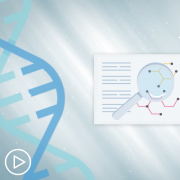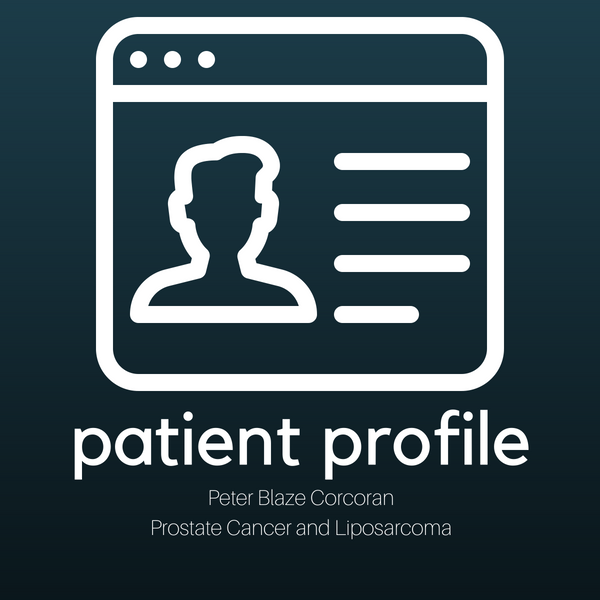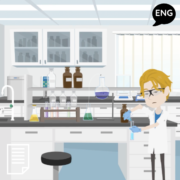Could Genetic Mutations Impact Your Prostate Cancer Treatment Options?
Could Genetic Mutations Impact Your Prostate Cancer Treatment Options? from Patient Empowerment Network on Vimeo.
Can prostate cancer treatment options be impacted by a patient’s genetic mutations? Expert Dr. Tomasz Beer defines precision oncology and explains how DNA repair and mutations can affect treatment options.
Dr. Tomasz Beer is Deputy Director at OHSU Knight Cancer Institute. Learn more here: https://www.ohsu.edu/people/tomasz-m-beer-md-facp.
See More From INSIST! Prostate Cancer
Related Resources

Why Should You Ask Your Doctor About Prostate Cancer Genetic Testing? |

|

Prostate Cancer Treatment Decisions: How Do Genetic Test Results Impact Your Options? |
Transcript:
Katherine:
Are there genetic mutations that affect the choices for prostate cancer treatment?
Dr. Beer:
Increasingly so. So, this is an exciting era in terms of those kinds of approaches. You may have heard the term “precision oncology” or “personalized oncology.” The ideas behind precision oncology is that each individual patient’s tumor is analyzed in detail for their biologic differences, and for the most part, those are mutations; although, it can be other. And that treatments may be available that work particularly well for patients whose cancers have a particular mutation. And so, today, there are a couple of categories of treatments that are FDA-approved and that can be used in prostate cancer treatment if the right mutations are present.
And one of those is a class of drugs called PARP inhibitors and those are indicated in patients with advanced prostate cancer who received some of our most commonly used routine treatments and who harbor mutations in a series of genes that are responsible for DNA repair. BRCA-2 or BRCA-2 is the most common of those, and that may be a gene that is familiar to people because it’s also a significant gene in terms of conferring risk of breast and ovarian cancer.
So, that’s the same gene we’ve been thinking about for breast cancer is also important in prostate cancer. There are other DNA repair genes as well that may sensitize a cancer to PARP inhibitors. Another area is something called microsatellite instability, which is a measure of how mutation prone a cancer is.
And cancers that acquire a large number of mutations are more likely to respond to immune therapies. And one might ask why that is, and it’s an interesting question. We believe it’s because, as a large number of mutations accumulate, we see more and more abnormal proteins that are made from those mutated genes, and those abnormal proteins, some of them are different enough from our native proteins, to cause the immune system to recognize them. And when we have an immune system that actually recognizes our cancer as foreign, we’re often able to amplify that immune signal and turn it into a potent anticancer weapon.
So, those are the two categories of mutations that we use in the clinic today, DNA repair and this microsatellite instability, but others are coming as we develop more targeted, specific agents designed for people with specific cancers who have specific mutations.
Katherine:
Dr. Beer, why should prostate cancer patients ask their doctor about genetic testing?
Dr. Beer:
Well, there are a couple main reasons for that. One is, of course, to examine their cancer and determine if they’re eligible for one of these targeted therapies. If we find those mutations, those patients have an extra treatment available to them. They can still be treated with all the hormonal therapies, chemotherapy, radiation-based treatments, but in addition to those, they have an additional targeted option. And so, that’s a real advantage for those patients who harbor those mutations. So, that’s really reason number one reason, number two is to potentially protect their families.
So, if a germline mutation is identified, that mutation can be passed on to kids. It may also be in other family members, brothers and sisters, and potentially be passed onto their kids. Important to understand that these mutations, as I alluded to earlier, are not just prostate cancer mutations. They can be passed through the mother. They can predispose folks to bre ast cancer. So, a germline mutation may be something the family would benefit from knowing about. It’s a complicated area, learning about inherited cancer mutation in the family, could be very stressful and frightening.
So, I wouldn’t say this lightly. I think it needs to be done within the context of genetic counseling and good advice about how to communicate things like that and what to do with them. We want to be able to help people reduce their risk of cancer without taking an emotional toll on multiple members of the family.
So, it’s important, and it’s also important to do it thoughtfully and carefully.










